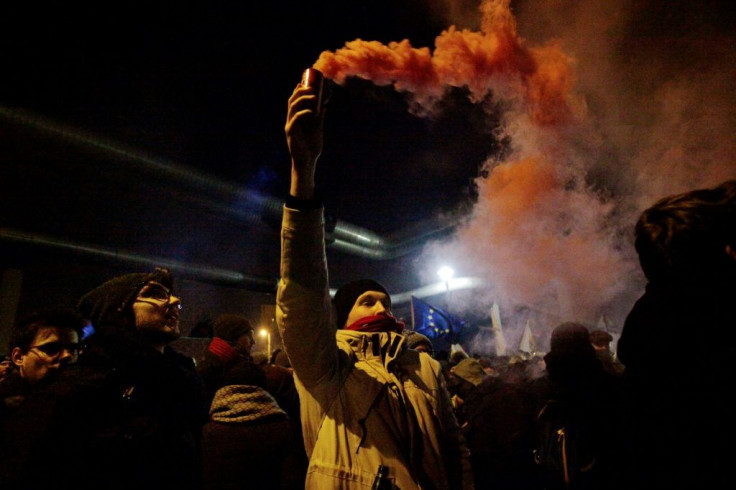Hungary Public Media Forced To Toe Govt Line: Leaked Recordings
Reporters at Hungary's public broadcaster have been forced to toe the line of the government of nationalist Prime Minister Viktor Orban, according to leaked recordings and testimonies revealed by Radio Free Europe/Radio Liberty (RFE/RL) Thursday.
In audio obtained by the US-funded news organisation's Hungarian service, Balazs Bende, a senior news editor at taxpayer-funded broadcaster MTVA, can be heard telling colleagues: "I'm sure no-one will be surprised to hear that it is not the opposition's list that enjoys the support of this institution."
The recording was made in the run-up to 2019 European Parliament elections.
"Whoever is in charge must produce content according to the appropriate narrative, method and direction, mostly about migrants and Brussels," Bende says, adding: "If anyone is not prepared to work under these conditions, he is free to file his resignation immediately."
During Orban's decade in power, Hungary's media landscape has been transformed, with public media long a government mouthpiece and large swathes of the private media sector owned by pro-government allies.
RFE/RL, which reports about countries where it says "a free press is banned by the government or not fully established," also obtained leaked instructions to staff to amplify the anti-migrant messages which form a key theme for Orban's Fidesz party.
"If these are said many times, even those who are otherwise critical of Fidesz's immigration policy will begin to believe it," one internal email reads.

On Wednesday RFE/RL published further material from employees inside MTVA testifying to political interference in the coverage of certain topics, such as LGBT issues, climate change and migration.
"We were instructed not to use the word refugee in any context," one employee said, adding: "Even among people who were officially granted refugee status, we talked about them as migrants."
Coverage of the coronavirus pandemic has also been altered in order to make Hungary's handling of the virus seem better in international comparison, according to leaked internal communications.
"The purpose of the whole theatre is to make it seem as though we don't have as much trouble as anywhere else," editor Miklos Beregnyei wrote in an internal directive on virus coverage.
MTVA journalists who spoke to RFE/RL described a "mafia-like" atmosphere of intimidation at the broadcaster.
"It's awful when people pick up a phonecall from a superior with trembling hands," one said.
MTVA has not replied to a request for comment by AFP.
In September RFE/RL re-started its Hungarian language service for the first time in 27 years, citing a "steep decline in media freedom" in Hungary.
The EU member state dropped 16 places to 89th place in media watchdog Reporters Without Borders' 2020 World Press Freedom Index.
In July, the 80-strong newsroom at the country's top independent news website Index.hu resigned en masse in protest over alleged political influence.
© Copyright AFP {{Year}}. All rights reserved.




















